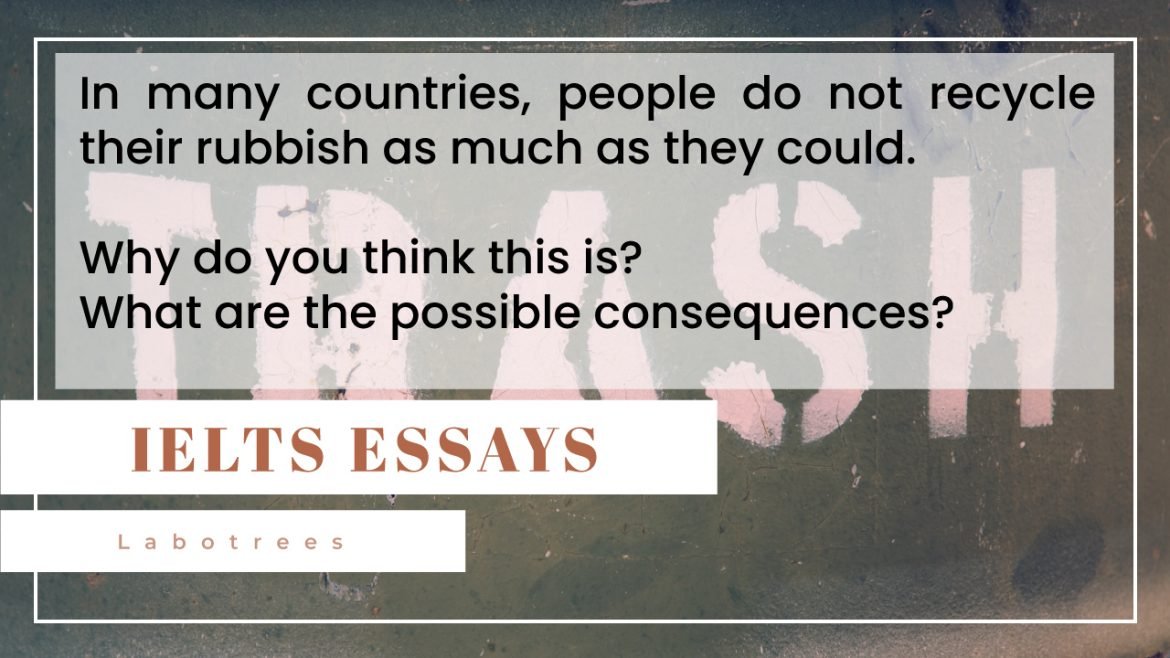In many countries, people do not recycle their rubbish as much as they could.
Why do you think this is?
What are the possible consequences?
In many nations, individuals are recycling very less amount of waste materials as much as they should do. The main reason behind this phenomenon is that people do not know which things can be recycled and due to this, there will be numerous waste sites in the future.
The primary reason behind this trend is a lack of awareness among people about recycling. This is because they do not know about the merits of recycling that can help to reduce litter in streets and other parts of the country. If people are taught about this, most people will try to reuse the material as much as possible. To illustrate, a recent study by Cambridge University found that in countries, where campaigns are organised to reduce waste, people of those nations are more likely to participate in recycling.
Due to this phenomenon, there will be a large amount of litter in the surroundings. This will cause huge damage to the environment in terms of air pollution and soil pollution. Not only this, people living around filthy areas will have to face dangerous diseases. For example, in many Asian countries, it has been found people living near landfill sites lose their life due to prolonged illness caused by toxic gases coming out of these sites.
In conclusion, in many nations, people do not opt to recycle much of their waste because they are not cognizant about recycling and this trend will result in large landfill sites. Therefore, it believed that campaigns will be organised in these countries to encourage people to recycle material.

